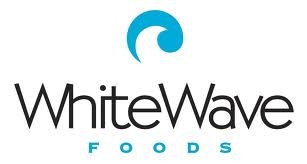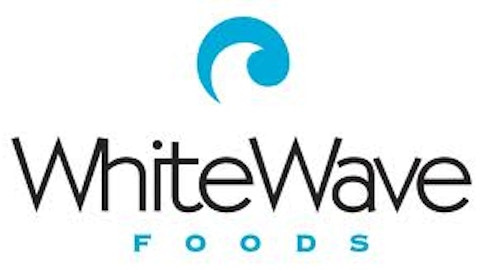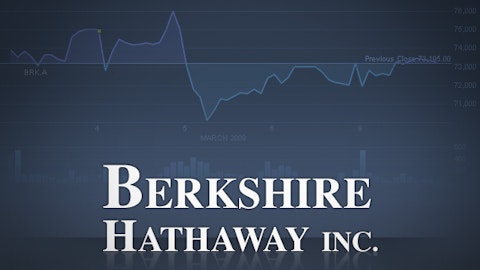A rose by any other name might still smell as sweet, but sugar still has to be called “sugar” and not “evaporated cane juice,” otherwise it leads to consumer confusion in the marketplace no matter how tasty on the tongue it would still be.
As I recently recounted, The WhiteWave Foods Co (NYSE:WWAV) was forced to settle a lawsuit for calling sugar ECJ instead, as the FDA says the name suggests the sugar cane syrup from which the sweetener is derived comes from juice, which it does not.
It’s becoming an industrywide problem as a more health-conscious consumer has food manufacturers scrambling to make their products seem wholesome. And to most people’s minds, eating something derived from juice as opposed to sugar sounds more nutritious. Yet despite The WhiteWave Foods Co (NYSE:WWAV)’s settlement, things remain confusing when it comes to ECJ because courts are issuing conflicting decisions, at least when it comes to who should have jurisdiction over deciding these matters.

From Kellogg‘s Kashi brand to discounter Trader Joe’s, trials lawyers are weighing in with lawsuits against companies listing ECJ on their labels instead of sugar. Greek yogurt maker Chobani tried to have its lawsuit dismissed for a lack of jurisdiction, believing the FDA is the appropriate body to decide these issues, but the judge said he was “not persuaded that these claims should be dismissed or stayed on primary jurisdiction grounds.” In short, the courts can determine the appropriateness of the use of ECJ.
Which is odd because WholeSoy & Co., another manufacturer being sued over its ECJ label claims, saw the judge in its case declare that it is “appropriate to defer to the authority and expertise of the FDA to say what the appropriate rules should be with respect to evaporated cane juice.”
As the two decisions came down on the same day regarding the same issue, legal experts believe higher courts will ultimately have to weigh in to settle the matter, but in the meantime manufacturers are left in the lurch because there could end up being conflicting rulings.
More to the point, The WhiteWave Foods Co (NYSE:WWAV) CEO Gregg Engles believes such micromanagement, whether by the FDA or the courts, snuffs out innovation. “But in an era of exploding consumer choice and information,” he said, “the notion that one food is perfect, and that consumers are easily confused about ingredients or source materials, is both incorrect and limiting.”
That may sound like a bit of self-serving commentary from a dairy executive trying to keep the industry’s use of artificial sweeteners under wraps — it doesn’t want to be forced to label aspartame-flavored chocolate milk as “artificially sweetened” — but there is some truth to it, too. Standards of identity can be beneficial, but they can also be used as a protection racket.
Jack Daniel’s distiller Brown-Forman Corporation (NYSE:BF.B) gains a competitive advantage when only straight bourbons made in Tennessee via the “Lincoln County process” can call themselves “Tennessee whiskey” and bourbons like those made by Beam are generally only permitted to be called that if they’re made in the U.S., and then typically in Kentucky. Apple could conceivably be subject to a lawsuit by the French wine police if it calls the color of its next generation of iPhone “champagne” because that’s also a protected word.
Whether or not you agree that evaporated cane juice is an actionable term, it’s easy to see that conflicting decisions will harm consumer goods companies that will increasingly become the target of trial lawyers who are already pushing their shopping carts down the grocery store aisle looking for the biggest names to sue.
Whole Foods Market, Inc. (NASDAQ:WFM) was hit with a lawsuit because its “natural” private-label soda contained caramel flavoring, citric acid, and carbon dioxide. The Coca-Cola Company (NYSE:KO) was sued because a lawyer said consumers would be confused over the name of its Vitaminwater brand. And Dr Pepper Snapple Group Inc. (NYSE:DPS) got served because its berry-flavored 7-Up label had pictures of berries on it and the plaintiff thought the antioxidants came from juice instead of the added vitamin E.
If the government is going to set common standards for food manufacturers, then there needs to be a single one-stop shop they can turn to when questions arise about their practices. Chobani fears the current environment will lead to confusion and lawsuits, and that outcome is not so sweet for consumers or investors.
The article Court Confusion Leaves Sour Taste Over Sweeteners originally appeared on Fool.com and is written by Rich Duprey.
Fool contributor Rich Duprey owns shares of WhiteWave Foods (NYSE:WWAV). The Motley Fool recommends Apple, Beam, Coca-Cola, and Whole Foods Market. It owns shares of Apple, WhiteWave Foods, and Whole Foods Market.
Copyright © 1995 – 2013 The Motley Fool, LLC. All rights reserved. The Motley Fool has a disclosure policy.



